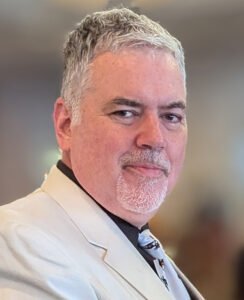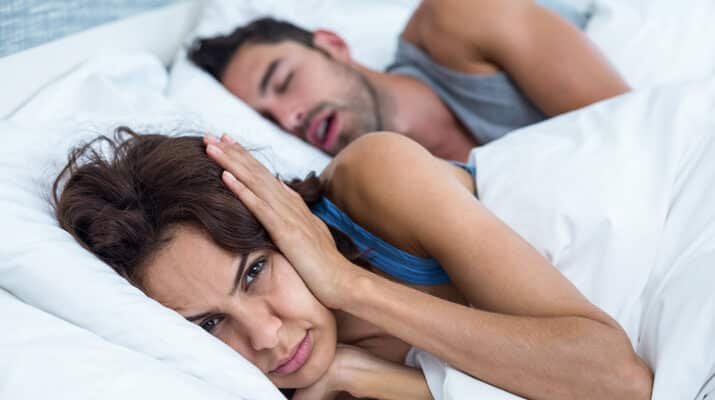By Deborah Jeanne Sergeant

Snoring can mean more than just a pesky nocturnal noise to the non snorers in the house. It can indicate that the one “sawing logs” has sleep apnea, which can have serious health consequences.
“Snoring is the disagreeable sound made by the vibrating tissues in a narrow oropharynx when forced air circulates towards the lungs,” said Antonio Culebras, director of Medical Neurology at Upstate Sleep Center and professor of Neurology at SUNY Upstate Medical University. “Most adults snore. But if snoring is loud, i.e. heard from another room or disturbing the bed partner, the condition should be brought to the attention of the primary care provider. The PCP will decide whether snoring merits testing or additional consultation.”
Untreated sleep apnea can increase risk of high blood pressure; insulin resistance and eventual Type 2 diabetes; heart disease and stroke; daytime fatigue; and mental health problems like mood disorders and cognitive impairment because of the lack of quality rest.
“This condition is best treated with CPAP applications, a device initially tested in sleep laboratories to determine pressure levels,” Culebras said.
Most insurance companies will not cover continuous positive airway pressure (CPAP) equipment if the patient has not received a sleep study. The CPAP equipment can cost $600. Some also dislike the thought of sleeping with a breathing mask and equipment near their bed. But patients have other options.
“Oral appliances may be considered if sleep apnea is of mild intensity,” Culebras said. “Dental specialists certified in sleep medicine create oral appliances.”
To get a good fit, dentists take impressions of the teeth. The custom-made device fits completely inside like a dental mouth guard. Like with the CPAP equipment, the patient seeking a dental appliance must have a formal diagnosis of sleep apnea to have a chance at coverage for a dental appliance to prevent apnea. Healthcare providers and dentists can refer patients for a sleep study. Before undertaking a sleep study, patients should contact their health insurance provider to ensure coverage of the study and for any equipment or appliances that can help them with sleep apnea.
“Surgical interventions to eliminate snoring and sleep apnea are virtually limited to children with adeno-tonsillar hypertrophy,” Culebras said.
Medication may also help. He added that the FDA has recently approved Tirzepatide weekly injections (Mounjaro, Zepbound) for the treatment of moderate or severe sleep apnea in persons with sufficient body mass index.
“After 52 weeks of treatment, half of the patients in the clinical study had lost sufficient weight (-15% to -20% of body weight) to discard the use of CPAP,” Culebras said.
A shorter-term fix may be changing the sleeping position. Sleeping on the side helps prevent the jaw from unhinging and allowing the tongue to sag into the airways unlike sleeping on the back.
It can also help to avoid alcohol and any substances that cause muscle relaxation as that can contribute to the tongue flopping into the airway. Ensuring that nasal passages are clear and open can also help prevent mouth breathing that leads to snoring.
“Not all cases of snoring mean the person who snores suffers from obstructive sleep apnea, but the two are closely associated,” said Robert Newman, respiratory therapist, registered polysomnographic technologist and night supervisor at the Sleep Disorder Center at St. Joseph’s Health.
He advised that a doctor’s visit may be in order for anyone who snores while accompanied by any of the following symptoms:
• Witnessed pauses in breathing during sleep
• Excessive daytime sleepiness
• Difficulty concentrating
• Morning headaches
• Sore throat in the morning
• Restless sleep
• Gasping or choking at night
• High blood pressure
• Chest pain at night
• Loud snoring is disrupting your partner’s sleep
• In children, poor attention span, behavioral issues, poor performance in school
“Newer glossal nerve stimulation, in which an electrical wire is implanted in the glossal nerve of the tongue, is also a better option for obstructive sleep apnea than snoring and in fact, is not recommended for simple snoring relief, nor do the manufacturers of such devices claim effectiveness in snoring relief,” Newman said. “In many cases, simple weight loss can be effective in reliving snoring. If snoring is becoming a problem, get it checked out by your doctor and pursue methods to alleviate it. Your body with appreciate your efforts and so will your sleep partner.”

